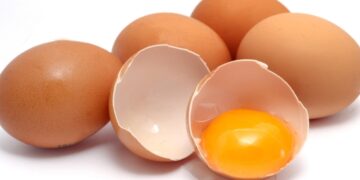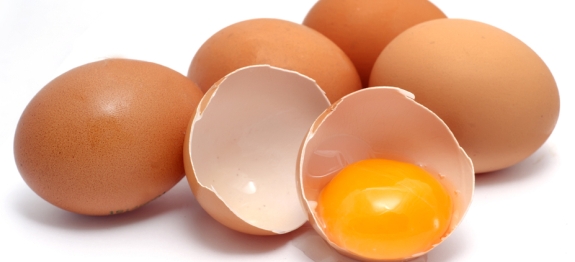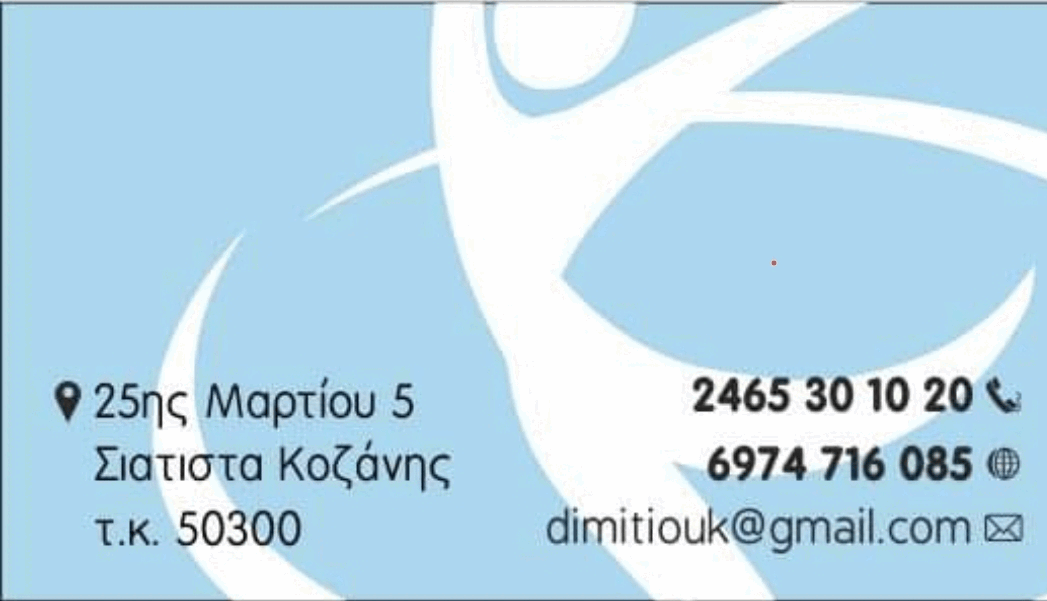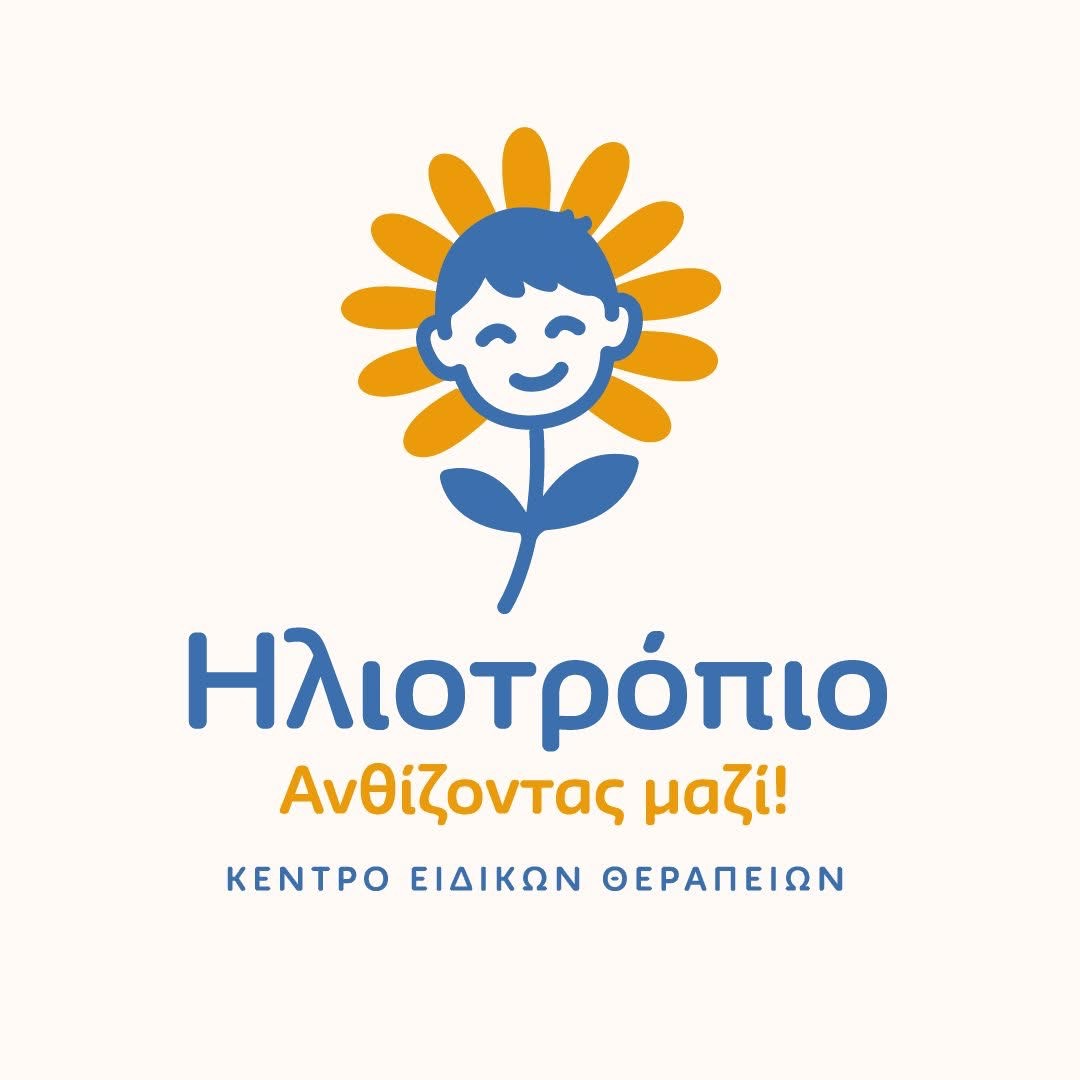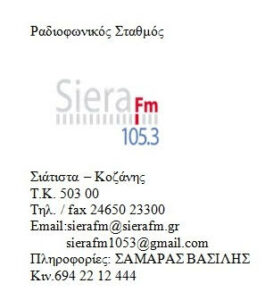Είναι ίσως η πιο παρεξηγημένη ζωική τροφή. Γιατί όσοι μύθοι κι αν το συνοδεύουν, βρίσκουν στην αντίπερα όχθη μία και μόνη αλήθεια. Τη μεγάλη διατροφική αξία του.
Ένα μεσαίο αυγό αποδίδει 70 θερμίδες και είναι φυσική πηγή βιταμινών B2, B12 και D, καθώς και βιταμίνης Α, φυλλικού οξέος και χολίνης. Δεν είναι όμως μόνο αυτά: Περιέχει 6 γρ. πρωτεΐνη υψηλής βιολογικής αξίας, 5-6 γρ. λιπαρά και 0-1 γρ. υδατάνθρακα. Συνεπώς, θεωρείται μια πλήρης τροφή, καθώς περιέχει όλα τα μακροθρεπτικά συστατικά. Όμως, κάνει να τρως αυγά κάθε μέρα; Αυτή και άλλες βασικές απορίες για την πιο παρεξηγημένη ζωική τροφή βρίσκουν την απάντησή τους.
Κάνει να τρως αυγά κάθε μέρα; 7 μύθοι για την παρεξηγημένη τροφή:
“Ο κρόκος του αβγού είναι ανθυγιεινός”
Ο κρόκος αποδίδει θερμίδες κυρίως λόγω των λιπαρών που περιέχει, σε σύγκριση με το ασπράδι που δεν περιέχει σχεδόν καθόλου λιπαρά. Ένας κρόκος περιέχει 180 mg χοληστερίνη, ενώ η συνιστώμενη ημερήσια κατανάλωση στο πλαίσιο μιας ισορροπημένης διατροφής δεν πρέπει να ξεπερνά τα 300 mg ημερησίως. Είναι ιδιαίτερα υψηλός σε λιποδιαλυτές βιταμίνες (A,D,E,K), ενώ περιέχει σημαντική ποσότητα ασβεστίου, σιδήρου, φυλλικού οξέος και B12 (η τελευταία είναι ιδιαίτερα σημαντική για τους χορτοφάγους). Ο κρόκος περιέχει περισσότερα λιπαρά και χοληστερίνη απ’ ό,τι το ασπράδι, ωστόσο έχει επίσης βιταμίνες και πολλά θρεπτικά συστατικά, όπως ασβέστιο και φυλλικό οξύ. Επίσης, περιέχει χολίνη, λουτεΐνη και ζεαξανθίνη, αντιοξειδωτικά που έχουν σχετιστεί με μειωμένο κίνδυνο εμφάνισης καταρράκτη.
“Δεν πρέπει να τρώμε αυγά κάθε μέρα”
Μπορούμε να τρώμε αβγά σε καθημερινή βάση, αρκεί να μην έχουμε αυξημένα λιπίδια στο αίμα, καθώς σε αυτή την περίπτωση η κατανάλωσή τους περιορίζεται σε 2-3 ολόκληρα αβγά την εβδομάδα, ενώ δεν υπάρχει περιορισμός για τα ασπράδια.
“Τα αβγά με καφέ κέλυφος είναι πιο υγιεινά από αυτά με άσπρο”
Αντίθετα με την κοινή αντίληψη, το χρώμα δεν παίζει κανένα ρόλο στη θρεπτική αξία του αβγού. Στην αγορά ενδέχεται τα καφέ αβγά να πωλούνται πιο ακριβά, αλλά αυτό δεν αποτελεί ένδειξη υψηλότερης θρεπτικής αξίας. Στην πραγματικότητα, το χρώμα στο κέλυφος του αβγού διαφέρει ανάλογα με τον τύπο της κότας που το γέννησε. Έτσι, υπάρχουν κότες που γεννούν καστανά αβγά και κάποιες, πιο σπάνιες ποικιλίες, που γεννούν ακόμα και μπλε ή πράσινα αβγά. Έτσι, δεν είναι θέμα ποιότητας, είναι θέμα γενετικής.
“Όταν έχεις χάσει τη χάρτινη θήκη, δεν υπάρχει τρόπος για να διαπιστώσεις αν ένα αβγό είναι φρέσκο”
Μπορείς να καταλάβεις αν ένα αβγό είναι ημερών ή αν έχει λήξει παρατηρώντας την άνωσή του στο νερό. Τοποθέτησε ένα αβγό σε νερό: Αν βυθιστεί, μπορείς να είσαι σίγουρη ότι είναι πολύ φρέσκο. Αν επιπλέει, ωστόσο, φαίνεται πως έχει μακρύ παρελθόν. Αυτό συμβαίνει επειδή με την πάροδο του χρόνου ο αέρας περνά μέσα από το κέλυφος στο εσωτερικό (καθώς είναι πολύ πορώδες).
“Το κέλυφος είναι άνευ σημασίας”
Κι όμως, εδώ υπάρχει ένα (μεγάλο) λάθος. Το πάχος του κελύφους είναι στην πραγματικότητα ένας καλός δείκτης για την ποιότητα του αβγού. Το παχύτερο κέλυφος προκύπτει από μια διατροφή που είναι πλούσια σε ασβέστιο, χάρη στην οποία και η κότα είναι πιο υγιής (επομένως και το αβγό πιο θρεπτικό). Και κάτι ακόμα: τα τσόφλια των μικρότερων αβγών είναι παχύτερα από τα τσόφλια των μεγαλύτερων. Αυτό καθιστά το ξεφλούδισμα ευκολότερο σε περίπτωση που θέλεις να απολαύσεις το αβγό σου σφιχτό.
“Αποθηκεύουμε τα αβγά στην πόρτα του ψυγείου”
Τα χάρτινα κουτιά αβγών έχουν σχεδιαστεί ειδικά για να αποτρέπουν τα σπασίματα και τα χτυπήματα και σίγουρα είναι ο καλύτερος τρόπος για να προστατευτούν τα αβγά από άλλες μυρωδιές φαγητών που αποθηκεύονται στο ψυγείο.
“Πρέπει να πλένουμε τα αυγά πριν τα βράσουμε με στόχο την καταπολέμηση της σαλμονέλας”
Τα βακτήρια αυτά είναι παρόντα στο εσωτερικό του αυγού με αποτέλεσμα το πλύσιμο να μη βοηθά ιδιαίτερα στην καταπολέμησή τους.
Συνεργάστηκε η Ευγενία Ηλιάδου, κλινικός διαιτολόγος-διατροφολόγος, MSc, SRD, UK (dietinfo.gr)
Πηγή: shape.gr
